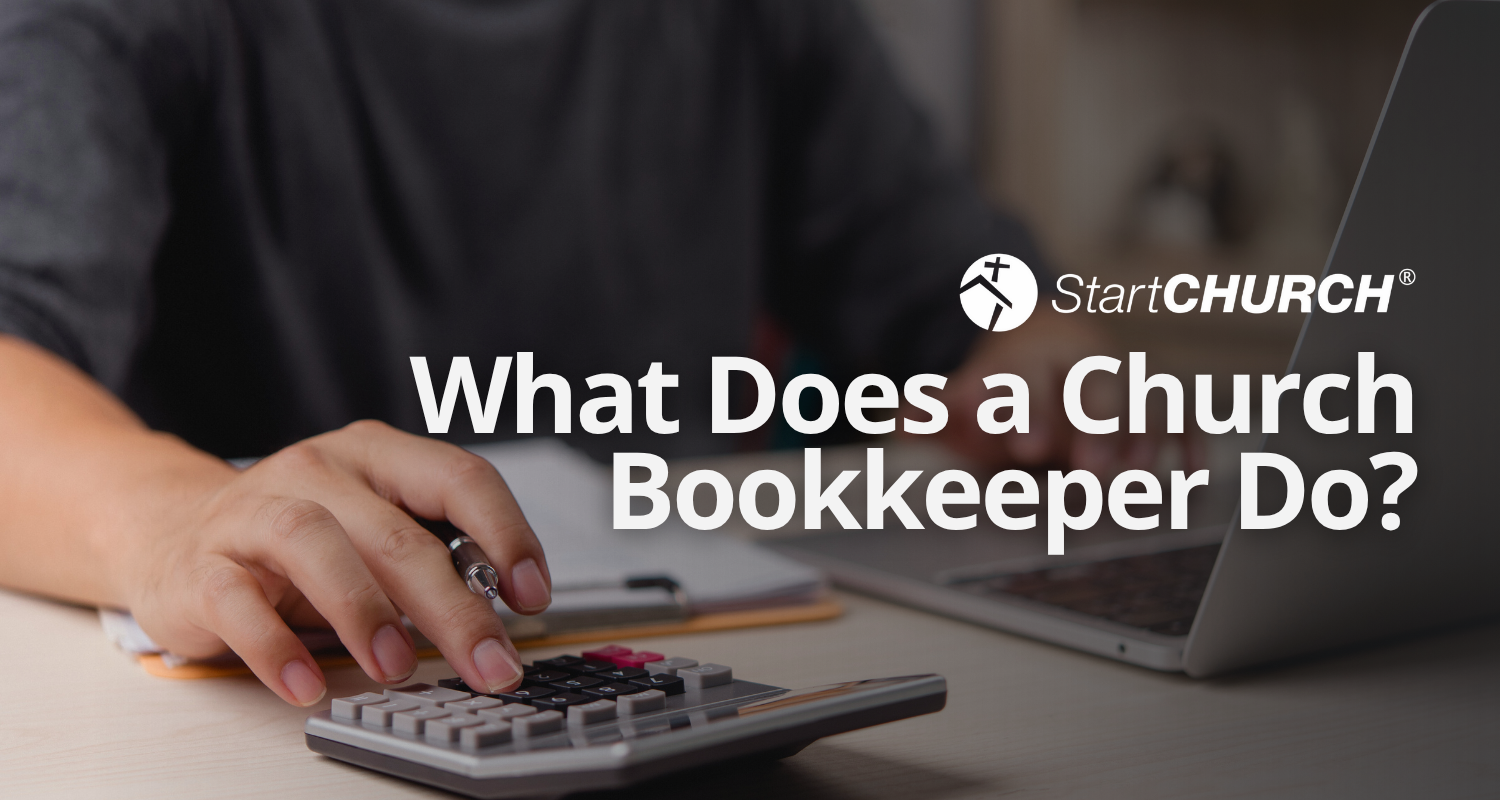What Does a “Church Bookkeeper” Do?
By Analiese Rivera

More Than Just Numbers
When most people hear the word bookkeeper, they think of spreadsheets, bank statements, and tax receipts. However, in a church setting, bookkeeping is more than just financial record-keeping. It is a ministry of stewardship, accuracy, and trust.
A church bookkeeper helps ensure that every dollar given to the ministry is handled with care. They make sure that the church’s financial practices are transparent, compliant, and aligned with its mission. In other words, they protect both the ministry’s integrity and its testimony.
The Heart Behind the Role
Finances may not feel spiritual at first glance, but Scripture consistently connects faithfulness in money with faithfulness in ministry. Luke 16:10 says, “Whoever can be trusted with very little can also be trusted with much.”
A church bookkeeper serves behind the scenes, allowing pastors and leaders to focus on preaching, teaching, and caring for people. Their work helps create confidence among donors, accountability for leaders, and a clear path forward for growth.
This is why many pastors say their bookkeeper is one of their most valuable team members.
The Core Responsibilities of a Church Bookkeeper
While every church is unique, most bookkeepers share several key responsibilities. Here are some of the most important:
1) Tracking Income and Expenses
Every donation, tithe, and offering must be recorded accurately. The bookkeeper ensures that funds are assigned to the correct accounts, such as missions, benevolence, or general operations. Churches must follow specific rules that differ from typical businesses, and the bookkeeper keeps everything in compliance.
2) Reconciling Bank Accounts
They verify that the church’s records match its bank statements each month. This helps prevent errors and detect issues early, ensuring financial transparency and accountability.
3) Generating Financial Reports
Church leaders and boards rely on accurate financial statements to make wise decisions. The bookkeeper prepares monthly and quarterly reports that show the church’s financial health at a glance.
4) Maintaining Donor Records
Bookkeepers track giving for contribution statements and provide documentation that members need for tax purposes. This work helps the church maintain trust with its supporters.
5) Supporting the Budgeting Process
A bookkeeper provides financial insights that help pastors plan for upcoming events, outreach projects, and ministry expenses. Their data helps the leadership make strategic, informed decisions.
StartCHURCH Bookkeeping* handles all of the above, join today!
Why Churches Need Specialized Bookkeeping
Church bookkeeping is not the same as business bookkeeping. Churches have unique financial rules and tax exemptions that must be adhered to to remain in compliance with IRS and state regulations.
A general accountant may not understand how to record tithes versus restricted gifts, or how to handle love offerings and housing allowances. A church bookkeeper understands those distinctions and helps ensure that every transaction reflects integrity and compliance with nonprofit law.
This protects the church’s legal standing, avoids penalties, and builds confidence among members who give faithfully.
The Value of Transparency and Trust
When finances are unclear or disorganized, even the best intentions can lead to confusion or conflict. On the other hand, when records are well-kept and reviewed regularly, members feel secure knowing their gifts are being handled properly.
A good church bookkeeper does more than balance accounts. They create an atmosphere of trust where generosity can grow. They also give pastors peace of mind, knowing that everything is handled correctly behind the scenes.
Partnering with Professionals
Many pastors feel overwhelmed by financial tasks. They went into ministry to serve people, not manage spreadsheets. Yet both matter.
That is why many churches now partner with professional bookkeeping teams, like StartCHURCH, that specialize in ministry finance. These professionals understand how to track offerings, handle payroll for clergy, and stay in compliance with nonprofit regulations.
This partnership allows pastors to focus on ministry while knowing their books are clean, their records are accurate, and their church is protected.
The Bigger Picture
A faithful bookkeeper helps ensure that the church’s mission continues without financial distraction. Their work may be quiet, but its impact is loud—it supports every outreach, every mission trip, every sermon, and every act of generosity that flows through the ministry.
Stewardship is not just about handling money well. It is about honoring God with everything that has been entrusted to us. A church bookkeeper helps make that possible, turning financial diligence into lasting ministry impact.
Join StartCHURCH Bookkeeping* today!
%bookkeeping-cta%
*Some services may be at an additional cost.

